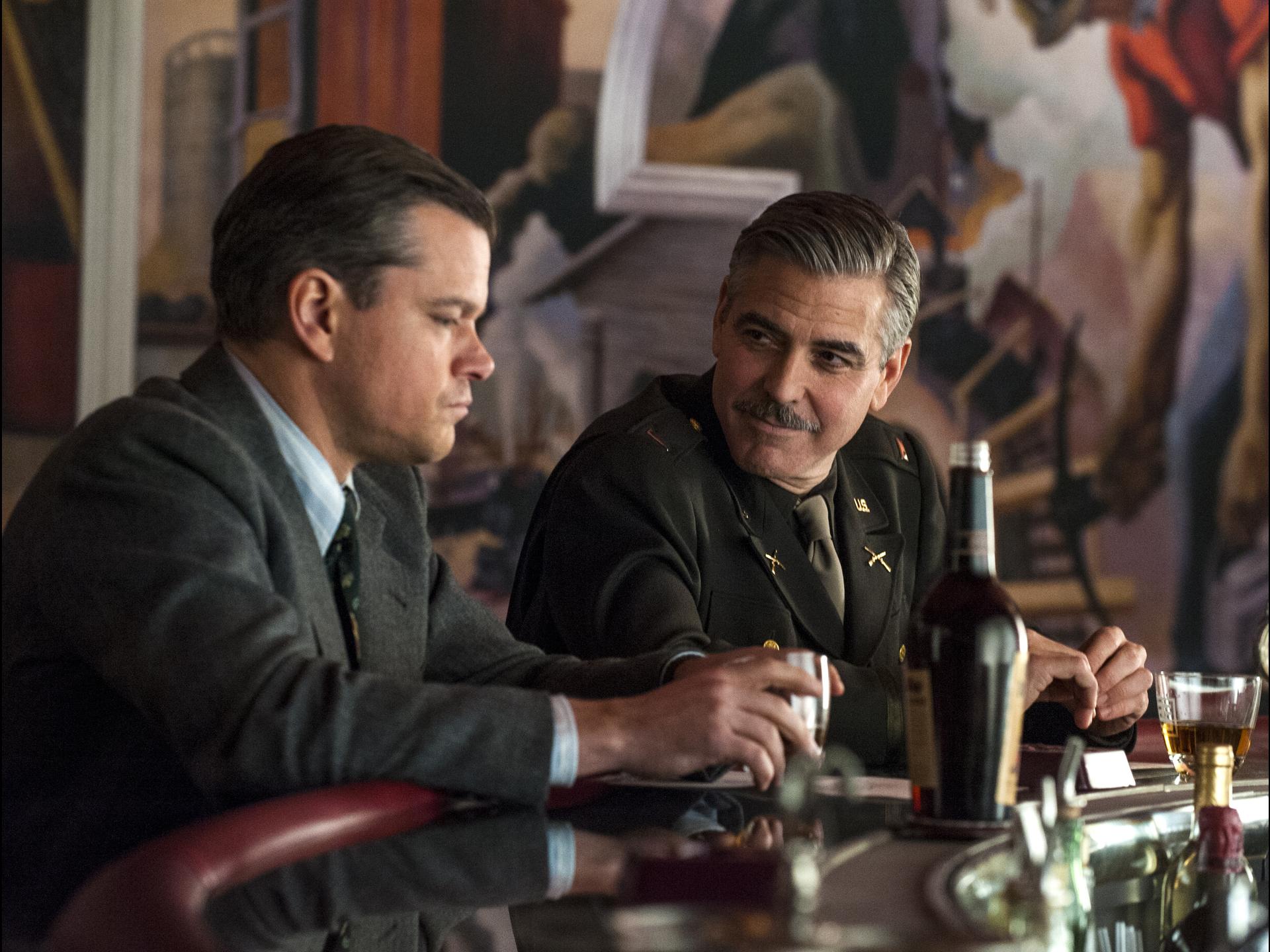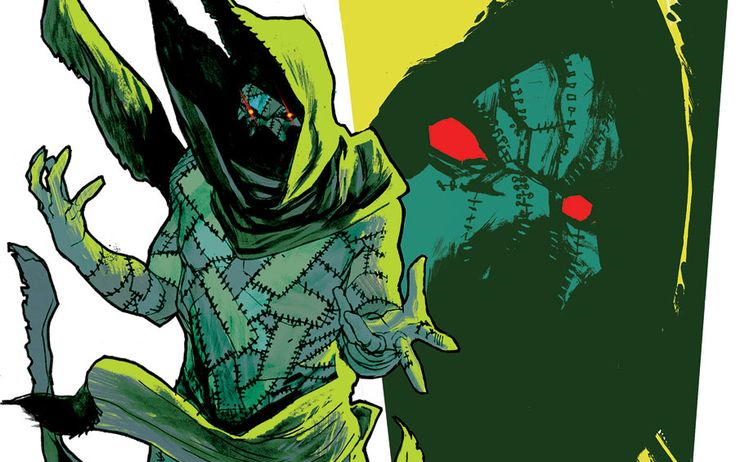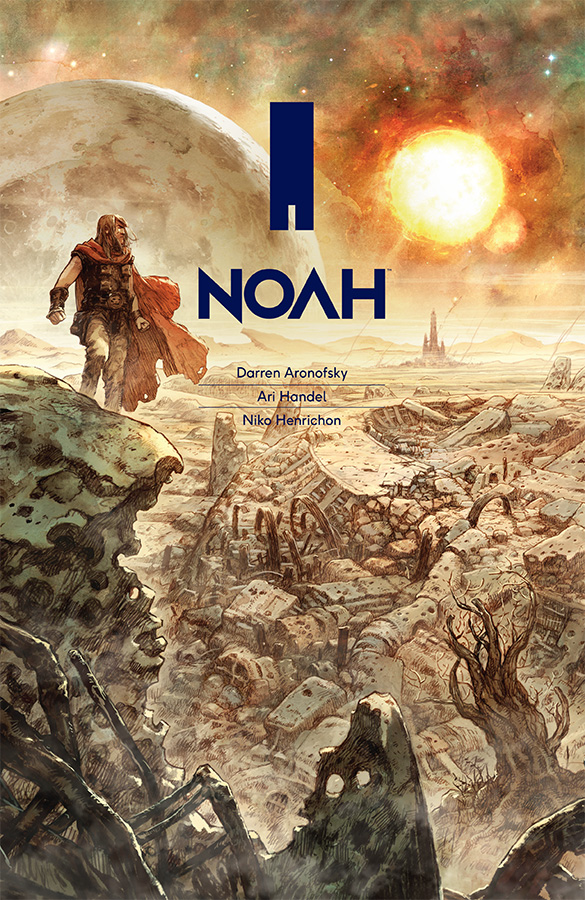Written by George Clooney and Grant Heslov
Directed by George Clooney
USA and Germany, 2014
The high-school history teachers of the world, or at least of the United States, can breathe easy, because they’ll have a new movie to add to their collections soon enough. Right before exam week, they can pop in The Monuments Men, a dull and flat period piece that takes a genuinely interesting nugget of a premise based on a true story and sands it down to a nub, removing all trace of personality within. Because the film’s co-writer and director, George Clooney, has assembled an all-star lineup with which to surround himself, The Monuments Men is not an entirely wasted affair, but it is absolutely a disappointing one.
Clooney plays Frank Stokes, an art professor who pleads his case to President Roosevelt in the middle of World War II, about the thousands of various pieces of art throughout Europe that have been pilfered by the Nazis. Stokes believes these pieces need to be retrieved and returned to their rightful owners. Even with the mammoth war occurring around them, FDR approves an Army mission, headed up by Stokes, and peopled with other top minds of high culture, including Stokes’ old friend and Metropolitan Museum of Art curator James Granger (Matt Damon), a burly sculptor (John Goodman), an architect (Bill Murray), and others. What little narrative drive there is revolves primarily over whether or not this group, who adopt the film’s title as their moniker, will get their hands on the Ghent Altarpiece; that specific set of paintings, though, is only offhandedly mentioned a few times before the final half-hour.
It’s hard to believe that a cast including Clooney, Damon, Goodman, Murray, Cate Blanchett (as a prickly but helpful French secretary), Bob Balaban, Hugh Bonneville, and Jean Dujardin could be part of a movie this plodding and slow, but somehow, Clooney the co-writer and director managed to pull it off. He and co-writer Grant Heslov paper over so many fine details, leaving aside any serious notion of what it must have been like for these civilians—all of them clearly too old to be drafted into general service, despite having to go through basic training before they ship out to Europe—to fight in a young man’s game. There is a too-quick moment where Stokes kisses his young son goodbye, but aside from that, we don’t see him long to be back with his wife (who we never see, but then, we see none of the American characters’ family members aside from Stokes’ kid). Even more, the script doesn’t develop the characters’ backgrounds deeply, and sometimes barely at all. Balaban’s character, for example, is recruited by Stokes while he’s holding auditions for dancers…somewhere. By the end of The Monuments Men, the title characters seem less like art experts and more like people whose enthusiasm for high culture is a hobby on the side.
Also somewhat odd is the mostly jaunty tone, from the misguidedly chipper Alexandre Desplat score to the number of meant-to-be-clever episodic moments, such as the scene where Goodman and Dujardin’s characters are beset upon by a mysterious sniper, who turns out to be a German kid. Our two heroes laugh it off and agree to keep this to themselves; while it’s logical that they’d be thrilled and relieved to still be alive, the image of a child wielding a weapon in that way is a grim one indeed. Early on, as Stokes and Granger figure out who they’ve got to get for this mission, it’s hard not to see the Steven Soderbergh Ocean’s trilogy as a bit of a tonal inspiration. A heist picture is fine, but setting it amidst the blood and guts of World War II is, at least in this film’s execution, something of a misfire. Strangely, though, the script rarely ups the tension by placing our leads into a serious firefight or battle; in one sequence, they’re spending time with the Allies at the Battle of the Bulge, but they seem to avoid the bloodshed. Here is a case where what may be true in real life merely seems narratively convenient on the screen.
The film’s not an entire wash; Clooney and Murray each get one legitimately solid moment, the former when facing off against a smug Nazi, and the latter when hearing his daughter’s voice unexpectedly. But the rest are essentially filler in a sadly uninspired war picture. It’s almost incredible that George Clooney was able to assemble this killer cast and thoroughly underuse all of them, himself included. By separating the characters up almost instantly into mini-missions, The Monuments Men is forced to shuttle around from story to story, making it so, for example, Damon’s Granger is AWOL for every other 15 minutes in spite of being as close to a deuteragonist as you can get. As the lead characters are scattered, so too is the film’s focus. Hard as it may be to believe, even with an ensemble as typically solid as this one, The Monuments Men is unable to find sure footing.
— Josh Spiegel








